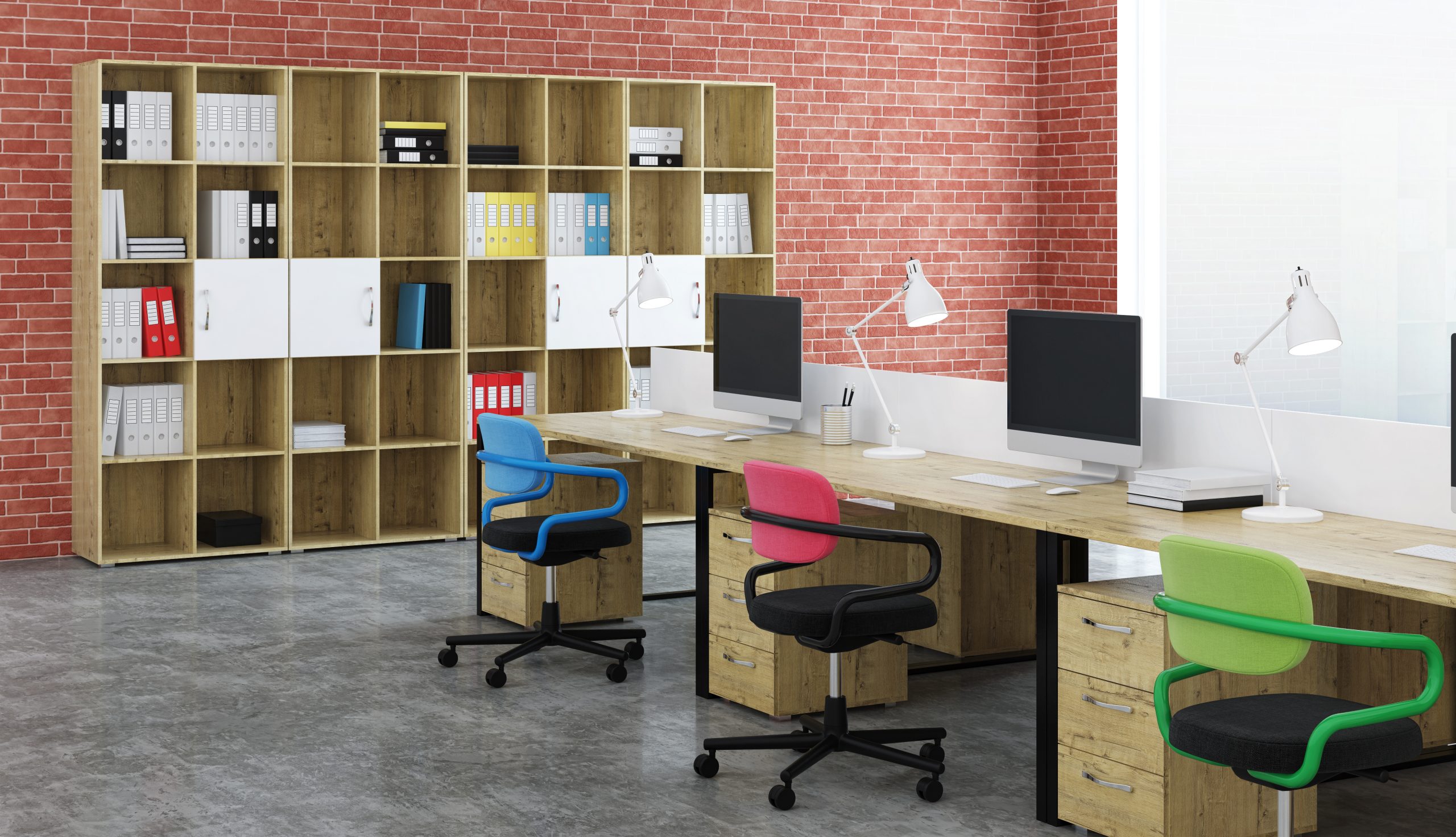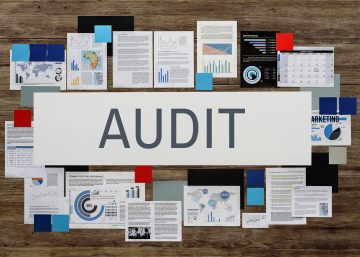If you’re a CA, CS, or tax professional, chances are your office space is your productivity hub. However, when it becomes cluttered, your focus and efficiency can take a serious hit. A well-organized office isn’t just about aesthetics—it’s a crucial factor in maintaining peak performance. Let’s explore how an organized office can help you achieve your goals and ensure you stay on top of your workload.
Benefits of an Organized Office Space
Clutter can be distracting, making it difficult to concentrate on the tasks at hand. By organizing your office, you streamline your workflow and create a space where you can focus on what truly matters—your work.
A chaotic office can lead to unnecessary stress. For tax professionals who deal with deadlines and sensitive documents, this stress can compound. An organized environment helps clear your mind, allowing you to tackle tasks more calmly and efficiently.
A clean, professional workspace reflects well on your practice. Clients visiting your office or interacting with you digitally will appreciate the organized environment, boosting their confidence in your services.
Before diving into reorganization, take stock of your current office situation.
Is there a pile of paperwork on your desk? Do you struggle to find essential documents? Make a note of the areas causing frustration or delay.
Break down your office into sections: physical desk space, filing cabinets, digital files, and more. Each of these areas requires its own approach to organization.
One of the first steps toward an organized office is decluttering.
This simple method involves labeling three boxes: “Keep,” “Donate,” and “Trash.” Go through your belongings and categorize them accordingly. This helps you remove unnecessary items quickly and effectively.
Focus on keeping only essential items within reach—like your laptop, phone, or frequently used documents. Less important items can be stored away.
With so much of your work being digital, decluttering your computer is just as important as organizing physical files. Clean up your desktop, organize folders, and delete unnecessary files regularly.
After decluttering, it’s time to organize your workspace into zones that promote efficiency.
Designate areas in your office for specific tasks—such as filing, client meetings, or work on digital platforms. This helps maintain order and focus in each zone.
Create a dedicated space for handling important client files, especially tax-related documents. Having a defined area for paperwork keeps it from spreading across your entire desk.
Organize your tech setup with designated spots for your laptop, printer, scanner, and chargers. Cable management tools are essential for keeping wires out of sight.
An organized space requires the right tools.
Invest in shelves, drawers, and cabinets that suit your office size. Use them to keep supplies, documents, and tools neatly stored and easily accessible.
Labels are key to maintaining long-term organization. Label your files, drawers, and storage boxes to ensure everything has its place.
To stay comfortable and productive, ergonomic furniture is a must. Choose a chair that supports your back and a desk at the right height to prevent strain.
Filing is a critical aspect of organization for CA, CS, and tax professionals.
If possible, digitize your files to reduce clutter. Going paperless means less physical filing and more secure document storage.
Sort your client files by category, year, or project. Whether digital or physical, having an organized filing system ensures you can quickly access what you need.
Keep sensitive tax information secure with encrypted digital storage or a locked filing cabinet. Your clients rely on you to protect their data.
Digital organization is just as important as physical tidiness.
Create a clear folder structure on your computer for easy navigation. For example, you can sort files by clients, projects, or types of services you offer.
Achieving “Inbox Zero” means processing emails in a way that keeps your inbox clear. Use filters and folders to sort important client messages from promotional or less urgent emails.
Cloud storage services, like Google Drive or Dropbox, are essential for collaborating with colleagues or clients. These tools allow you to store, access, and share documents efficiently from anywhere.
Your office setup isn’t just about physical space—it’s about managing your time effectively too.
Use Task Management Software to organize your workload. These platforms allow you to break projects down into manageable tasks and track deadlines.
Keep your calendar synced across all devices and set reminders for important client meetings or tax deadlines.
A simple timer can improve productivity. The Pomodoro technique, for instance, involves working for 25-minute intervals followed by short breaks to maintain focus.
A clutter-free desk is a productive one.
At the end of each workday, take a few minutes to clear off your desk. This ensures you start the next day with a fresh, organized space.
Set aside time at the end of each week to reorganize any documents, supplies, or notes that have accumulated over the past days.
Keep office supplies to a minimum by only storing what you need. This prevents supplies from cluttering up your workspace unnecessarily.
Your office should be functional, but it can also reflect your personality.
A few personal items—like a plant, a framed photo, or art—can make your office feel more comfortable without creating clutter.
Remember to balance comfort with professionalism. Keep your personal items minimal to avoid distracting from the work environment.
Remember to balance comfort with professionalism. Keep your personal items minimal to avoid distracting from the work environment.
Even with the best intentions, some common pitfalls can sabotage your organization efforts.
Keep your systems simple. Overly complex methods will be difficult to maintain and may end up adding more stress.
Don’t forget about your digital space. An organized physical office means little if your computer files are a mess.
Once your office is organized, maintenance is key to keeping it that way.
Set aside time each week to clear out unnecessary items and ensure everything is in its place.
Your organization needs may evolve as your work or clients change. Be flexible and willing to adjust your systems accordingly.
Conclusion :
Creating an organized office space is essential for CA, CS, and tax professionals looking to boost productivity, reduce stress, and make a great impression on clients. With the right tools, systems, and mindset, you can transform your workspace into a hub of efficiency that supports your career goals. Start with a few small changes today, and before you know it, you’ll have an office that works for you.
FAQs :
Q.1 What’s the best way to declutter my workspace quickly?
Start with the “Three Box” method—Keep, Donate, Trash. Focus on essentials first.
Q.2 How can I maintain organization with a busy schedule?
Dedicate a few minutes daily to tidying up, and schedule weekly maintenance sessions.
Q.3 What are the best tools for digital file management?
Cloud storage platforms like Google Drive or Dropbox are ideal for easy access and collaboration.
Q.4 How can an organized office improve client interaction?
A clean, professional workspace boosts client confidence and shows you’re on top of your work.
Q.5 Should I go completely paperless as a tax professional?
Going paperless reduces clutter and improves security, but it’s important to back up digital files securely.
Q.6 What are the best ergonomic furniture options for long working hours?
Invest in a good ergonomic chair and an adjustable desk to maintain comfort during long hours.
Q.7 How often should I reorganize my office?
Set a weekly schedule for decluttering and reorganization to maintain order.
Q.8 Can a cluttered digital space affect my productivity?
Yes, a cluttered digital workspace can slow you down and make it harder to find important files.
Q.9 How do I ensure sensitive documents remain secure in a digital office?
Use encrypted cloud storage and secure passwords to protect sensitive client information.
Interested in improving your customer satisfaction, increasing client retention, preventing revenue leakage, maximizing efficiency and effectiveness? Register for a demo of ERPCA, India’s first multi-lingual, mobile-app based practice management software for CA firms, tax consultants, financial services advisory firms and more. Better still, sign up for a 14-day free trial of ERPCA and see for yourself the wonderful features and benefits of this software.










